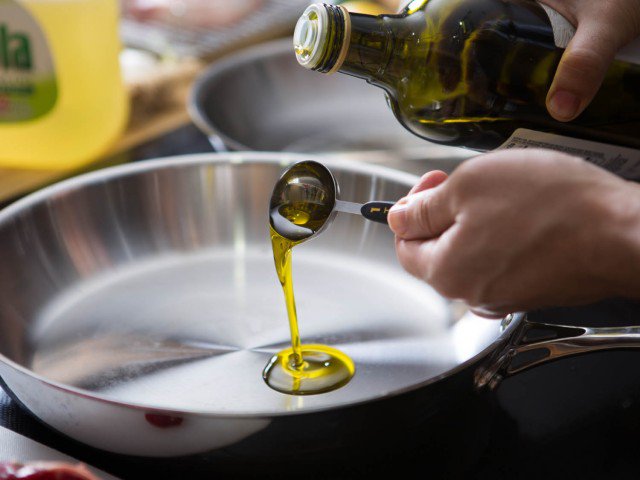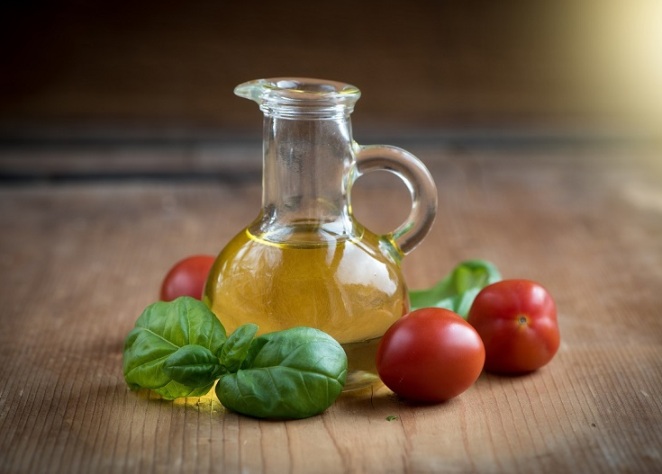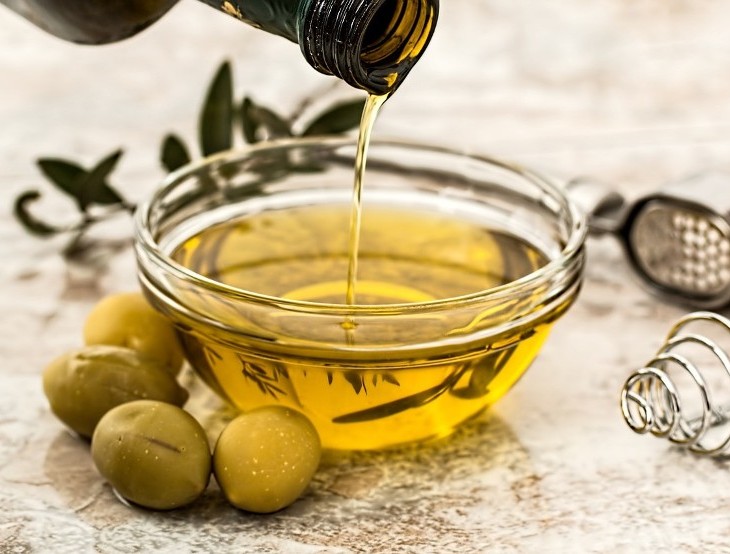Olive Oil: Types, Features And Benefits
Considered, without exaggeration, as liquid gold, olive oil is one of the largest allied of health. Both the virgin as the extra is an exceptional shield to prevent diseases. Includes olive oil in your diet and gains in health.
The olive oil is one of the key foods of Mediterranean diet, considered one of the healthiest dietary profiles.
Olive oil, among many other benefits, is an excellent antioxidant, which also can be considered as an anti-aging food. Discover all the properties of olive oil, a truly Mediterranean product and whose virtues have at our fingertips.
Table of Contents
Types of olive oil
Olive oil is the jewel of the healthy Mediterranean diet, however it is important to recognize that beyond the olives with which the oil has been made or the flavor that it presents, depending on the composition of the product as well as the obtaining it we can distinguish different varieties of olive oil and not all of them are suitable for human consumption.
At present there are the following types of olive oil:
Virgin olive oil
This oil is obtained only by mechanical methods of cold pressing, is made with the first pressing of the olives and does not apply any heat to increase production.
Extra virgin olive oil
This type of virgin olive oil is considered the highest quality and best taste since its degree of acidity or concentration of oleic acid is close to or even less than 1%. One of the most characteristic features of this oil is its intense green color.
Fine virgin olive oil
In this case we have good quality oil but that is not comparable to extra virgin because it does not have the same organoleptic properties due to an acidity that is already close to 2 degrees. Compared with extra virgin olive oil, this type of oil stands out for a more golden color.
Ordinary virgin olive oil
Although this oil is suitable for human consumption, its concentration in oleic acid exceeds slightly 3% and therefore it’s organoleptic or flavor properties are scarce.
Lampante virgin olive oil
The quality of this product is so low that it is not suitable for human consumption, even if it is a type of virgin olive oil. Its acidity is higher than 3.3 degrees and was formerly used as fuel oil lamps, hence its name derives.
Refined olive oil
It is a very poor quality olive oil and has a totally unpleasant taste. Although its acidity is lower than that of extra virgin olive oil so that this oil can be consumed must undergo several refining processes where heat is applied, thus losing practically all the medicinal properties inherent to a good olive oil.
Olive oil
When the term “olive oil” is not accompanied by any other specification we are in fact before oil obtained from the mixture of a virgin olive oil suitable for human consumption and refined olive oil. Both the taste and the acidity vary depending on the type of virgin olive oil used in the mixture.
Olive pomace oil
This type of oil is the one in which the olives bone is also used, which is pressed and crushed to subsequently apply various chemical agents. This process allows to increase the oil production, which although has very limited organoleptic properties. It is suitable for human consumption and usually mixed with some type of virgin olive oil.
Raw olive pomace oil
The process for obtaining this oil is the same as that mentioned in the previous point; however, in this case, the olive pomace oil is not mixed with any other type of oil.
Refined olive pomace oil
Following the same method of production, this oil is subsequently refined to eliminate unwanted qualities and is suitable for human consumption as long as its acidity does not exceed 0.5 degree.
How much calories does olive oil carry?
The olive oil is constituted mainly by the macronutrient known as lipid or fat, studies in the field of nutrition have established that one gram of fat provides 9 calories, the most caloric nutrient as carbohydrates and proteins provide only 4 calories per gram.
But the fact that the diet that promotes the use of this oil has been considered the healthiest in the world by multiple experts should warn us about the importance of recognizing that calories should never be a determinant in the diet.
It is obvious that they must be taken into account, but they are not decisive, since the calories only provide information about how much energy a food contains, but they do not provide any information about the nutritional food quality
On numerous occasions when a diet or dietary plan is made to lose weight, the olive oil used daily in the different recipes that are prepared must be counted, so it is useful to know how many calories this ingredient contributes based on this type of measurement.
A tablespoon olive oil contains approximately 15 grams of it; therefore the approximate energy value is 135 calories.
Bearing in mind that a normal caloric diet for an adult man should have a value of 2,500 calories a day and that 30% of these calories should come from fats, if we pretend that these are only obtained through olive oil, they could be consumed approximately 5 tablespoons of olive oil daily.
Benefits of olive oil
Vitamins A, D, E and K
Olive oil contains vitamins (A, D, E, K) and promotes the absorption of calcium, magnesium or phosphorus and other minerals. Promotes digestive process, helps fight heartburn and improves intestinal transit.
Protects the liver
The liver functions will be strengthened if you take a spoonful of olive oil on an empty stomach. It will help to purify the organism and also protects against the so-called fatty liver disease.
As its name suggests, it is the process of fat formation in this organ. There are two types within this disease. One of them is the one that has little inflammation in the liver cells and the second type does have damage as well as some inflammation. Hence, the oil consumption can protect it and avoid this whole process.
Control blood pressure
Olive oil also helps control blood pressure and blood sugar levels. Thanks to its polyphenol content, it is an excellent shield against the effects of free radicals. Its high monounsaturated fatty acids content helps to reduce LDL or bad cholesterol levels.
Prevents cardiovascular diseases
Olive oil has attracted the interest of experts. Thus, several studies have found that olive oil can help prevent degenerative diseases such as Alzheimer’s, while reducing the risk for cardiovascular disease.
Keeps bones strong
Olive oil is good for the bones, preventing bone loss and the risk of osteoporosis.
Delays aging
Olive oil can delay aging, thanks to the high concentration of polyphenols it has as main ingredients. These act as natural antioxidants which are very necessary to delay wrinkles in the skin.
The oil has the virtue of maintaining the elasticity of the skin, thanks to the fatty acids we have mentioned and also vitamins E or K.
Favors digestion
Olive oil will reduce gastric acid secretion, which is a secretions mixture of several epithelial cells. Basically, the gastric juice is a solution of Sodium Chloride. Therefore the oil will reduce this secretion, thus protecting from gastrointestinal diseases and avoiding gastric acidity.
Fight diabetes
The studies are clear on this issue: the cases of type II diabetes can be reduced by half, thanks to the consumption of olive oil. It is a reason for the healthy fats that are part of this food which would lead to keeping sugar levels regulated.
Anticancer properties
Apparently, studies have ruled that thanks to olive oil compounds, it could prevent cancer. Again it is the oleocanthal which would be responsible for discarding the cancer cells, without the others being damaged.
But not only that within a healthy lifestyle, the oil has such good ingredients that the risk of suffering from the disease is lower in people who take it on a regular basis.
Helps to lose weight
There are no miracle products, but it is true that some foods will help us control and even reduce weight. In this case, the main benefit of olive oil is linked to a healthy diet.
With the calories of olive oil, a couple of tablespoons a day, divided between the main meals, either for cooking or raw, will bring this new benefit as it is quite satisfying.
Against constipation
You have to consume olive oil in moderation, as it can have a laxative effect. So it is a home remedy, for mild constipation. It will help regulate intestinal transit, soften harder stools and eliminate intestinal inflammation or irritation.
Moisturizes and nourishes skin and hair
Both skin and hair will be perfectly nourished as well as hydrated, thanks to this food.
As for the first, the oil will delay aging. While in the hair, it will provide an extra touch of shine, leaving it more natural and silky. In the same way, it will also make your growth stronger.
How to use olive oil
Olive oil is a food that brings benefits to both the diet of adults and children. A very versatile food because it can be used in all kinds of foods (salads, stews, meat or fish, fried…).
To take full advantage of its properties, it is best to take it raw, as dressing for salads, for example, and even follow a Mediterranean tradition, making toast bread with a drizzle of olive oil at breakfast.
How to use olive oil well for frying
When we use cold extra virgin olive oil there is no doubt.
Add the amount that will be used during the preparation of the recipe that we are preparing and consumed at room temperature or cold and so not only maintain the properties and benefits of the oil but also do not generate toxic.
The doubts or misuses appear when we use the EVOO (Extra virgin olive oil) for frying. Many times we do not use it correctly and we want to give you some minimum guidelines to follow so that you can use olive oil correctly.
- If you use fryer, we turn it on once we have put the EVOO. In the pan the same, first add the EVOO and then put to heat over medium heat.
- Add enough EVOO to cover the food you are going to fry. Besides that the food will be cooked in a more homogeneous way, it will absorb less oil and therefore will be less oily.
- We should not wait until the oil is so hot that smoke comes out. If we see that smoke is coming out of the oil it means that it is burning and we should even discard the oil because it is toxic to health.
- The temperature of the oil should not exceed 180°C, its point of smoke.
- It is very useful to have a fryer with thermostat with which we can regulate the temperature at which the oil is.
- Do not use more than three times the same EVOO for frying. When the EVOO has been subjected to high temperatures several times as in the case of fried foods, toxic compounds such as acrolein, acrylamide or trans fats appear. Other types of oil, such as canola, generate more toxic at 180ºC, therefore, they are an option to avoid.
- After using the EVOO, it should be strained to remove small pieces of food and store in a glass jar and put it in the refrigerator where we can keep it up to a month.
- Even for roasts or other preparations made in ovens, it is more healthy to use virgin olive oil than other oils such as sunflower or corn because, at high temperatures for long periods, produces less degradation products.
- As for microwaves, the oils degrade to a greater extent due to the high temperatures that are reached, even components that could resist heating in a fryer or frying pan can be degraded.


